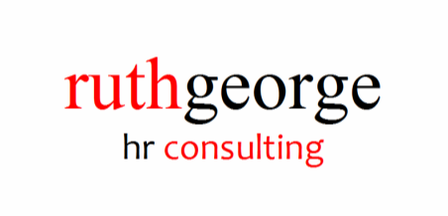Why is it that so many organisations are talking about employee engagement right now? And just to clarify, I’m not talking about work colleagues getting hitched!
For people that work in the field of HR employee engagement is something we’ve known about for years. In the corporate HR world we typically carried out annual engagement surveys, produced reports and worked closely with department heads and line managers to identify key insights and provide interventions to maintain or increase overall engagement scores.
In the SME world it was previously very rare for engagement surveys to be conducted. But as it has done for so many other areas of life, Covid has flipped the traditional approach to employee engagement on its head – why is that?
For people that work in the field of HR employee engagement is something we’ve known about for years. In the corporate HR world we typically carried out annual engagement surveys, produced reports and worked closely with department heads and line managers to identify key insights and provide interventions to maintain or increase overall engagement scores.
In the SME world it was previously very rare for engagement surveys to be conducted. But as it has done for so many other areas of life, Covid has flipped the traditional approach to employee engagement on its head – why is that?
Partly remote working has made organisations take digitisation seriously. Most large multi-national companies were already using various systems and platforms, whereas SMEs – unless they were in the tech sector - were less likely to have embraced technology. Often this was because they thought it would be too expensive, they weren’t very digital-savvy themselves and they worried it wouldn’t fit their organisation and culture. In fact the opposite is true; there are tonnes of digital engagement survey platforms out enabling SMEs to find a system with the right ‘look and feel’ for them without it costing the earth.
Secondly, during lockdown a number of my SME clients had a, ‘penny drop’ moment - particularly those that used the furlough scheme. Furlough brought into sharp relief the roles or tasks that were either irrelevant, unnecessary or could be done more efficiently digitally. The old adage, “necessity is the mother of invention,” had those same SMEs hurrying to get the right systems in place and Covid acted as catalyst for this.
Thirdly, the experience of lockdown made organisations take a breath and take stock. For many MDs and CEOs having to cut the umbilical cord and allow people to work remotely was a revelation. The tone and topic of conversation changed. Employees were often pleasantly surprised just how much their boss took an interest in what was going on for them personally. Employers were pleased that productivity didn’t dip because of remote working. Everyone had a heightened awareness of just how precarious life could be and the mantra of, “we’re in this together” and how important each other’s mental health and wellness was, really took hold.
Consequently SMEs have been much more receptive to discussions about staff engagement, staff mental wellbeing and company culture. Lockdown made MDs realise there is more to life than work and if you recognise that and allow colleagues to understand each other better, giving them the psychological safety to talk things through (the good, the bad and the ugly) your staff will pay you back in kind with their motivation, loyalty and creativity. Turns out, it’s good to talk – especially about the tricky, messy, difficult stuff. Organisations of all shapes and sizes are realising the power of those conversations and this helps drive up engagement. That’s good for everyone: happy workers = productive workers = profitable companies.
Secondly, during lockdown a number of my SME clients had a, ‘penny drop’ moment - particularly those that used the furlough scheme. Furlough brought into sharp relief the roles or tasks that were either irrelevant, unnecessary or could be done more efficiently digitally. The old adage, “necessity is the mother of invention,” had those same SMEs hurrying to get the right systems in place and Covid acted as catalyst for this.
Thirdly, the experience of lockdown made organisations take a breath and take stock. For many MDs and CEOs having to cut the umbilical cord and allow people to work remotely was a revelation. The tone and topic of conversation changed. Employees were often pleasantly surprised just how much their boss took an interest in what was going on for them personally. Employers were pleased that productivity didn’t dip because of remote working. Everyone had a heightened awareness of just how precarious life could be and the mantra of, “we’re in this together” and how important each other’s mental health and wellness was, really took hold.
Consequently SMEs have been much more receptive to discussions about staff engagement, staff mental wellbeing and company culture. Lockdown made MDs realise there is more to life than work and if you recognise that and allow colleagues to understand each other better, giving them the psychological safety to talk things through (the good, the bad and the ugly) your staff will pay you back in kind with their motivation, loyalty and creativity. Turns out, it’s good to talk – especially about the tricky, messy, difficult stuff. Organisations of all shapes and sizes are realising the power of those conversations and this helps drive up engagement. That’s good for everyone: happy workers = productive workers = profitable companies.
